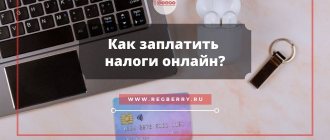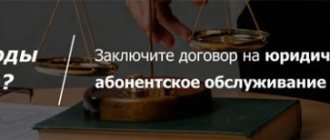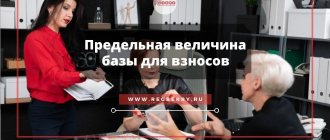As the Ministry of Foreign Affairs of the Russian Federation indicated in letter No. 19261/kd dated April 27, 2012, depending on the regime of stay on the territory of the Russian Federation, some categories of foreign citizens are required to obtain a patent:
- Citizens who have reached 18 years of age and arrived in Russia on a visa-free basis.
- Citizens of Azerbaijan, Moldova, Tajikistan, Uzbekistan, Ukraine and other countries.
No need to obtain a patent:
- Foreign citizens arriving in Russia with a visa.
- Foreign citizens arriving from the EAEU member countries: Armenia, Belarus, Kazakhstan and Kyrgyzstan, since the taxation regime for citizens of these countries largely coincides with the taxation of Russian citizens.
Procedure for calculating personal income tax
Situation 1
Category of citizens : temporarily staying foreign citizens from countries with a visa-free regime (except for the EAEU).
Patent : must be obtained.
At what rates should personal income tax be calculated?
- at a rate of 13% from income up to 5 million rubles. for the tax period, regardless of whether citizens are tax residents of the Russian Federation (clause 3 of Article 224 of the Tax Code of the Russian Federation, Letter of the Ministry of Finance of the Russian Federation dated June 13, 2017 No. 03-04-05/36673)
- 650 thousand rubles. plus at a rate of 15% on the amount of income exceeding 5 million rubles, if the amount of the corresponding income for the tax period is more than 5 million rubles (clause 3.1 of Article 224 of the Tax Code of the Russian Federation).
Situation 2
Category of citizens: foreign citizens with temporary residence permit.
Patent: no need to obtain.
At what rates to calculate personal income tax : depends on whether citizens are tax residents of the Russian Federation:
- 13% or 15% - standard tax rates for residents
- 30% is the tax rate for non-resident citizens, with the exception of income listed in paragraph 3 of Art. 224 Tax Code of the Russian Federation.
Art. 207 of the Tax Code of the Russian Federation establishes that foreign citizens who are actually in the Russian Federation for at least 183 calendar days within 12 consecutive months, which may fall on different calendar years, are recognized as tax residents. The Ministry of Finance of the Russian Federation, in letter No. 03-04-05/3343 dated January 22, 2020, notes that the status of tax residents of the Russian Federation is determined for each date they receive income.
Common mistakes on the topic “Withholding income tax from foreign workers in 2022”
Error: The employer submitted an application to the Federal Tax Service to issue a personal income tax deduction for a foreign employee on account of the advance payments he made when “purchasing” a patent. Without waiting for notification of permission to make deductions, the employer reduced the personal income tax from the migrant’s next salary.
Until the Federal Tax Service Inspectorate sends a notification about the possibility of a tax deduction, the employer of a foreign employee does not have the right to reduce the amount of personal income tax from the migrant’s wages. Even if the notification does not arrive for a long period of time.
Error: An employer whose enterprise is registered in St. Petersburg hires a foreign citizen who has issued a patent in the Moscow region.
A foreign citizen must carry out labor activities in the territory of the region in which he issued the patent. If the work is found in another subject of the Russian Federation, the patent will have to be reissued.
Calculation of personal income tax upon receipt of a temporary residence permit by a temporarily staying foreign citizen on a patent
Foreign citizens can simultaneously have both a patent and a temporary residence permit. Key points to consider:
- Receipt by a foreign citizen of a temporary residence permit is not a reason for the revocation of a patent.
- A patent can be revoked only in cases provided for in paragraph 22 of Art. 13.3 Federal Law No. 115-FZ dated July 25, 2002. Receiving a temporary residence permit by a foreign citizen does not apply to such cases.
- Clause 5 Art. 13.3 Federal Law No. 115-FZ dated July 25, 2002 establishes that a patent is valid until the period for which advance personal income tax payments have been paid in advance.
Therefore, foreign citizens who have received a temporary residence permit are subject to the provisions of paragraph. 3 p. 3 art. 224 Tax Code of the Russian Federation . When paying personal income tax, you need to take into account:
- Income is taxed at a rate of 13% or 15% with the offset of fixed advance personal income tax payments, regardless of whether foreign citizens are tax residents of the Russian Federation or not.
- If foreign citizens made advance payments of personal income tax monthly, and not in advance, after receiving the temporary residence permit, they do not have to be made . Since temporarily staying citizens acquire the status of temporary residents, they do not need a patent. Let us remind you that according to paragraph 1 of Art. 2 Federal Law No. 115-FZ dated July 25, 2002, a patent is a document confirming the right of foreign citizens temporarily staying in the Russian Federation on a visa-free basis to carry out labor activities.
- If fixed advance payments are not made, the patent expires (clause 5 of Article 13.3 of the Federal Law of July 25, 2002 No. 115-FZ).
- When the patent ceases to be valid, tax rates depend on whether the foreign citizen is a resident of the Russian Federation - 13% (15%) or 30% .
Example
The company employs a temporarily staying foreign citizen on PSN. The employee made fixed advance personal income tax payments for 6 months for the period from 04/19/21 to 10/18/21.
On June 24, 2021, it was decided to issue a temporary residence permit to the employee - he acquired the status of a temporary resident.
Until the expiration of the patent (10/18/21), personal income tax is calculated in the manner applicable for foreign citizens on personal income tax at a rate of 13% or 15%, including payments made.
If after 10/18/21 a foreign citizen becomes a tax resident of the Russian Federation (when he stayed in Russia for more than 183 calendar days within 12 months), personal income tax will be calculated at a tax rate of 13% or 15%, but the crediting of previously paid advance payments will stop.
Accounting for advance payments for personal income tax of foreign employees in 1C: Enterprise Accounting ed. 3.0
Published 01/18/2022 08:28 Author: Administrator Saving on inexpensive labor from neighboring countries brings joy, probably only to the manager. But for an accountant, this is a complete headache: to understand the legislation, set up migration registration, check which employees should have patents and which should have work permits, etc. In this article we will consider one of the important issues - the offset of advance payments for personal income tax using the example of the 1C program: Enterprise Accounting ed. 3.0.
If in practice you have not encountered such cases, then your procedure is as follows:
1. Check the employee’s payment document confirming payment of the advance payment for personal income tax;
2. Take an application from the employee with a request to reduce personal income tax by the amount of the advance payment;
3. Receive a positive notification from the tax office about the right to reduce the employee’s personal income tax. If an employee paid for a “rolling” patent using different tax periods, then there should be two notifications;
4. Reduce the employee’s personal income tax by using the paid patent when calculating wages.
Let's move on to a specific example: a foreign citizen was hired on April 8, 2022. On the same day, he provided a receipt for payment of the advance payment for 9 months (48,069 rubles) and submitted a notification to the tax office about the right to reduce personal income tax by the amount of the advance payment.
Step 1. Create a document “Hiring” in the section “Salaries and Personnel” - “Personnel Documents”.
Step 2. We check the employee’s receipt for the advance payment and in the section “Salaries and Personnel” - “All documents for personal income tax” we create an application confirming the right to offset advance payments for personal income tax (hereinafter referred to as the application).
Naturally, we fill in all the necessary fields: employee data, Federal Tax Service and period.
After checking the application, click the “Check” button and send it to the tax office. If you do not have the 1C-Reporting service, the application can be downloaded in xml format and sent through any TKS operator.
Step 3. The next step is to monitor the status of the application and, upon receiving a positive protocol, check the “Document accepted by the tax authority and archived” checkbox in the application.
Step 4. Next, in the section “Salaries and Personnel” - “All documents for personal income tax”, create the document “Advance payment for personal income tax”.
We fill in the necessary details: tax period, number and date of notification, Federal Tax Service, date of payment for the patent and amount of payment. We check and review the document.
Now the program knows that the employee has paid an advance payment and his personal income tax can be reduced until the entire amount of the advance payment has been spent, but this rule applies only within one tax period - a calendar year.
Step 5. Let's check the offset of advance payments when calculating wages in the "Payroll" document. It is there that you will see whether advances were applied or not, as well as in what amount.
The column “Advances credited” must indicate an amount equal to the amount of calculated personal income tax. Since we have only entered an advance payment, its limit is 100%. With each calculation of the employee’s personal income tax, the balance of the advance payment will decrease.
Step 6. Check the document “Statement to the Bank”.
The amount to be paid must be equal to the amount of accrued wages.
Gradually, the amount of advance payments for personal income tax will be counted and remembered by the program on an accrual basis.
If at the end of a year the employee has not used his advance payments in full, then they expire. There is no provision for transfer to the next calendar year or return of the Tax Code of the Russian Federation.
However, if an employee purchased a patent for several months and did not use the entire amount of advance payments within the expected time frame, then the balance of advance payments can be taken into account when withholding personal income tax in subsequent months of the same tax period.
Step 7. Reflection in the 6-NDFL report will be as follows:
That's all. We hope that you have no questions regarding advance payments.
Author of the article: Tatyana Bukarenko
Did you like the article? Subscribe to the newsletter for new materials
Add a comment
JComments
Procedure for calculating insurance premiums
Regardless of whether foreign citizens have a work patent, insurance premiums are calculated in the same manner.
The only exceptions are citizens of the EAEU member . They are charged insurance premiums at the rates established for Russian citizens. In this case, the status of foreign citizens (temporarily staying, temporarily or permanently residing) does not matter.
Tariffs are specified in sub. 15 clause 1 art. 422 and Art. 425 Tax Code of the Russian Federation , clauses 1 and 4.1 art. 2 Federal Law No. 255-FZ dated December 29, 2006, Art. 10 Federal Law No. 326-FZ dated November 29, 2010, as well as Federal Law No. 167-FZ dated December 15, 2001.
Insurance premium rates for temporarily staying foreign citizens (without a temporary residence permit):
- contributions to compulsory pension insurance are 22% from payments not exceeding the maximum base value, and 10% from payments exceeding it
- contributions to the Social Insurance Fund for temporary disability are 1.8%
- There is no need to pay compulsory medical insurance contributions
Insurance premium rates for temporarily residing foreign citizens (with temporary residence permits) are similar to the rates applied to Russian citizens. According to paragraph 2 of Art. 425 of the Tax Code of the Russian Federation they are:
- contributions to compulsory pension insurance – 22% on payments not exceeding the maximum base value, and 10% on payments exceeding it
- contributions to the Social Insurance Fund for temporary disability and in connection with maternity - 2.9% for payments not exceeding the maximum base value; payments in excess of the maximum base value are not subject to contributions
- compulsory medical insurance contributions – 5,1%.
Insurance premiums in connection with occupational diseases and accidents at work are set at the same rates as for citizens of Russia (Clause 1, Article 20.1 of the Federal Law of July 24, 1998 No. 125-FZ).
If foreign citizens acquire the status of temporary residents, the rate of insurance premiums for compulsory health insurance does not change . The basis for calculating contributions continues to be determined in accordance with the general procedure.
After foreign citizens receive a temporary residence permit, insurance premiums to the Social Insurance Fund are paid at a rate of 2.9% , and compulsory medical insurance premiums are charged on income at a rate of 5.1% .
The Ministry of Finance of the Russian Federation, in a letter dated August 6, 2019 No. SD-4-11/ [email protected] , indicated that if foreign citizens receive a temporary residence permit, the amount of their income should be divided into two parts . The first part is from the beginning of the month to the date preceding the date of issue of the temporary residence permit. The second part is from the date of issue of the temporary residence permit until the end of the month.
How to fill out an application and submit it to the tax office
The application is written strictly according to the model developed and approved by the Federal Tax Service.
The form includes information about the employer and foreign worker, as well as the tax office to which the application is submitted, but the amount of personal income tax is not indicated in it.
Once the application has been properly completed, it must be submitted to the tax office. You can do this in any convenient way:
- coming to the tax office in person,
- coming with a representative holding a power of attorney,
- through electronic means (provided that the employer has a digital signature registered in accordance with all the rules),
- by sending via Russian Post by registered mail with acknowledgment of receipt.
How much will the refund be made?
There are two options for calculating personal income tax for foreigners working under patents in Russia:
- The patent payment is less than the amount of income tax on wages.
- The patent payment is greater than the personal income tax on wages. That is, the amount of fixed advance payments for the tax period equal to the validity of the patent exceeds the income tax on labor remuneration.
Here are examples of tax and deduction calculations for these options. We remind you that the personal income tax rate for a non-resident employed on the basis of a patent is 13% (clause 3 of article 224 of the Tax Code of the Russian Federation).






